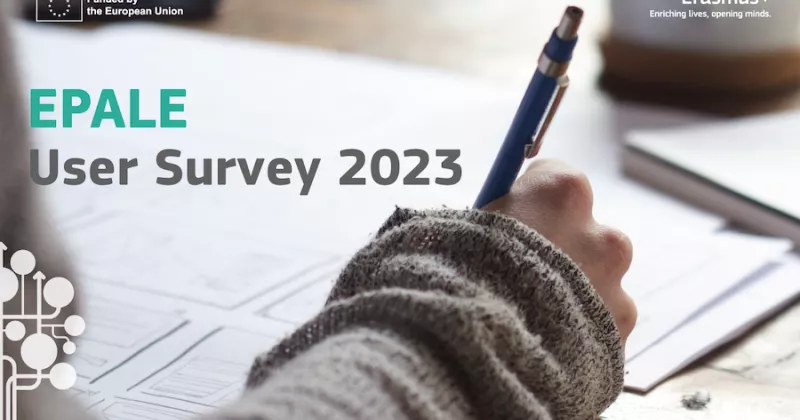Antonia Castellani: The relevance of complex meta-skills

Short bio
Graduated in Ancient Literatures, MA. Trainer, consultant and project manager, CEO of Skill Up Srl. I have 20 years of experience in adult education training on Soft Skills (design and management) in both European projects and training projects, and I’m a program manager and researcher for a number of Erasmus+ projects.
My main strengths are lateral thinking, problem solving and versatility.
My story
I started working in adult education in 2000, when my job as an archaeologist turned into that of a trainer in the field of cultural heritage enhancement and promotion. Since then my interests, combined with the needs communicated to me, have brought me closer and closer to the training of very different people. Unemployed people, NEETs, managers and office workers, both young and older, all have their own specific training needs but all - at the same time - have some common macro-needs: to understand themselves, to accept change and become leaders of it, to learn to listen to others and to communicate, to learn effective behaviour in both one’s private life and at work.
Over the last five years, my work as a trainer has led me to reflect on the absolute relevance of complex meta-skills, which I wish were no longer called 'soft', but instead 'power skills', because they are indeed really powerful. “Soft skills” are often seen as an add-on, as a secondary complement to (hard) technical skills, whereas all recent studies show that it is precisely on power skills that people’s employability and the success of work teams depend the most.
I would like to give some details on those aspects, based on my experience.
Think Diverse! (2020-1-IT02-KA227-ADU-095146) was a project where seven partners from three European countries spent two years reflecting on the meaning of diversity and the need to adapt our behaviour towards welcoming what is different. Italy worked on gender and sexual orientation diversity; France on cultural and religious diversity, and Spain on mental diversity, thus opening up an innovative debate in regard to mental health. The approach based on the use of creativity made it possible to mix educational aims with the immediacy of the artistic vision, to use tools and methods that remain less explored in training, and to find valid and lasting points of contact between the different professional backgrounds of trainers and creative people. The Italian partners, as part of the final results, organised an event that involved a large number of artists for a group exhibition dedicated to gender diversity. Sixty-five artists participated, 600 people visited the exhibition, while 7,700 followed the event on Facebook. This showed how much people need non-traditional ways of expressing themselves, as well as communicating their thoughts and learning about complex issues like diversity.
LOL – Learning Operative Lab (2021-1-IT02-KA210-ADU-000034967), has produced a Training Offer Portfolio on Soft Skills for trainers in adult education, based on the use of Emotional Intelligence, which can be downloaded.
It was a great experience in terms of both personal and organisational growth, in which all partners learnt from each other and in turn offered their know-how. The balance of the project is highly positive: we shared high-quality and very innovative training tools, we took part in three days of intensive residential training in Prague, we forged professional relationships from which new project ideas are already emerging, and we met some pleasantly surprising people.
Prometheus – Bringing Soft Skills in VET (2022-2-IT01-KA210-VET-000101250), is currently selecting the most useful power skills for young people’s employability, then we will move on to creating a training toolkit to offer to adult education trainers that target young adults.
My experience is leading me towards implementing tools for adult education that will build the skills for the future: creativity, meta-level critical thinking, awareness, reflection, emotional literacy, and leadership are the basis on which personalities can be helped to bloom and careers can be built.
3 necessary skills for the future?





In this blog post, Antonija…
In this blog post, Antonija Castellani looks at the importance of complex metaskills in today's job market. She begins by defining complex metaskills as the ability to "understand and apply complex ideas and concepts, and the ability to solve problems using critical thinking and creativity." Castellani argues that complex metaskills are becoming increasingly important as the labor market becomes more complex.
Castellani uses several strategies to capture the reader's attention. First, she begins with a powerful opening statement: "Complex metaskills are the job skill of the future." This sentence grabs the reader's attention because it is challenging and makes the reader think about how complex metaskills relate to his or her life.
Second, Castellani uses examples to illustrate his arguments. For example, she describes how complex metaskills can be used to solve a problem related to new product development. Castellani's examples help the reader better understand and learn from her arguments.
Castellani also relies on research to prove his point. For example, she cites research showing that people with complex metaskills are more successful at work. This study helps lend credence to Castellani's argument.
Overall, Castellani's blog post is informative and fascinating. The strategies she uses, such as a strong introductory sentence, examples, and research findings, help draw the reader's attention and convince them of her point of view.
As a teacher, I have observed that complex metaskills are becoming increasingly important in education as well. Students with complex metaskills find it easier to learn new knowledge and skills, as well as solve problems. I hope that Castellani's blog post will help teachers and students understand the importance of complex metaskills and how to develop them.